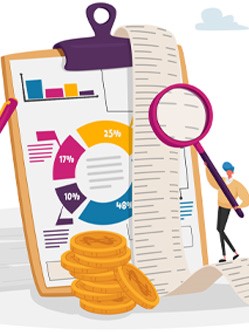Sales Tax Consultancy: A Practice Growth Opportunity
After the U.S. Supreme Court Wayfair decision, more businesses than ever find themselves with a multistate sales tax compliance requirement. Recognizing this client need and your desire to remain the primary adviser for your clients, a sales tax consulting service can be a win-win for both you and your clients.
 By Jeff Meigs
By Jeff Meigs
CPA firms should constantly evaluate opportunities to expand or diversify their service offerings, especially when it can result in additional revenue at higher margins than their traditional services. After the U.S. Supreme Court Wayfair decision,1 more businesses than ever find themselves with a multistate sales tax compliance requirement – or at least questions about their sales tax obligations. How will your clients get their sales tax questions answered? Recognizing this client need and your desire to remain the primary adviser for your clients, a sales tax consulting service can be a win-win for both you and your clients.
Getting Started
First and foremost, confirm that a need or risk exists within your client base or in a market you might desire to serve. Sales and use taxes can affect businesses of all sizes and in virtually any industry. You may find pent-up demand among your own clients, and this would be the best place to start.
 Here are two things you can do to help identify a potential sales tax need or risk within your existing clients:
Here are two things you can do to help identify a potential sales tax need or risk within your existing clients:
- Determine your clients’ sales tax nexus footprint. Compare the state income tax filing calendar to the state sales tax filing calendar. If your client is filing an income tax return in a state but is not filing a sales tax return, they may be exposed. Evaluate the gross receipts during the prior 12 months to identify potential economic nexus (revenue in excess of $100,000 is a common threshold across the states for sales tax nexus). Identify any physical presence your client has (temporary or permanent) in states where it isn’t already registered for sales tax purposes.
- Determine the taxability of your clients’ primary revenue streams. Once you have identified the states in which sales tax nexus exists, determine if any of the revenues derived from those states are subject to sales and use tax. Where your clients’ revenues are subject to sales and use tax, do they sell to exempt entities (i.e., resellers, nonprofits, manufacturers, government, etc.)? If so, does the client have adequate documentation (resale/exemption certificates) to support its exempt sales?
Now you need to move up the ladder.
For any new service offering to succeed, there must be consensus from the entire partner/management team and a commitment to supporting the necessary steps/actions. Understanding both the risk of sales tax noncompliance as well as the threat of loss to a competitor are additional incentives beyond just the additional revenue potential of adding a sales tax service.
Securing the Necessary Resources
A sales tax consultancy is usually split into four general areas: tracking nexus (both physical and economic), understanding the taxability of products and services, mitigating exposure, and audit support.
If you don’t already have sales tax expertise within your practice, you will need it. Here are a few ways to acquire the requisite expertise:
- Hire an experienced sales tax professional – While this would result in immediate credibility, it is often difficult to find a quality sales tax resource in today’s employment climate.
- Train existing resources – Have someone within the practice develop the knowledge base. Focus on a particular industry/client segment and a specific component of sales tax, such as nexus or taxability, and then expand the knowledge base as the opportunities necessitate. While sales tax is a niche within the overall tax ecosystem, it’s broad application to all industry segments and the nuances that exist from state to state make establishing expertise in the area challenging and time consuming.
- Partner with another firm or provider with the expertise – Whether you are reselling services or referring to a trusted partner, as long as your client receives the support he or she need, you keep the client happy and avoid them engaging with a competitor.
There are important challenges to consider when deciding whether or not to add a sales tax consultancy to your service offerings, but the impact of sales tax obligations and the risk to your clients can be significant. If you aren’t addressing this issue with your client, who is?
Secure your client base, get out in front of potential risk, and expand your portfolio of services. The work could increase both revenue and recognition for you and your firm.
1 South Dakota v. Wayfair Inc., et al. For more, read this overview from TaxConnex.
Jeff Meigs is a partner and consulting practice leader at TaxConnex, a technology-enabled sales tax service provider focused on delivering an outsourced sales tax department to businesses and corporations that have a multistate sales tax responsibility. He can be reached at info@taxconnex.com.
Sign up for PICPA's weekly professional and technical updates by completing this form.
Statements of fact and opinion are the authors’ responsibility alone and do not imply an opinion on the part of the PICPA's officers or members. The information contained herein does not constitute accounting, legal, or professional advice. For actionable advice, you must engage or consult with a qualified professional.
PICPA Staff Contributors
Disclaimer
Statements of fact and opinion are the authors’ responsibility alone and do not imply an opinion on the part of PICPA officers or members. The information contained in herein does not constitute accounting, legal, or professional advice. For professional advice, please engage or consult a qualified professional.






